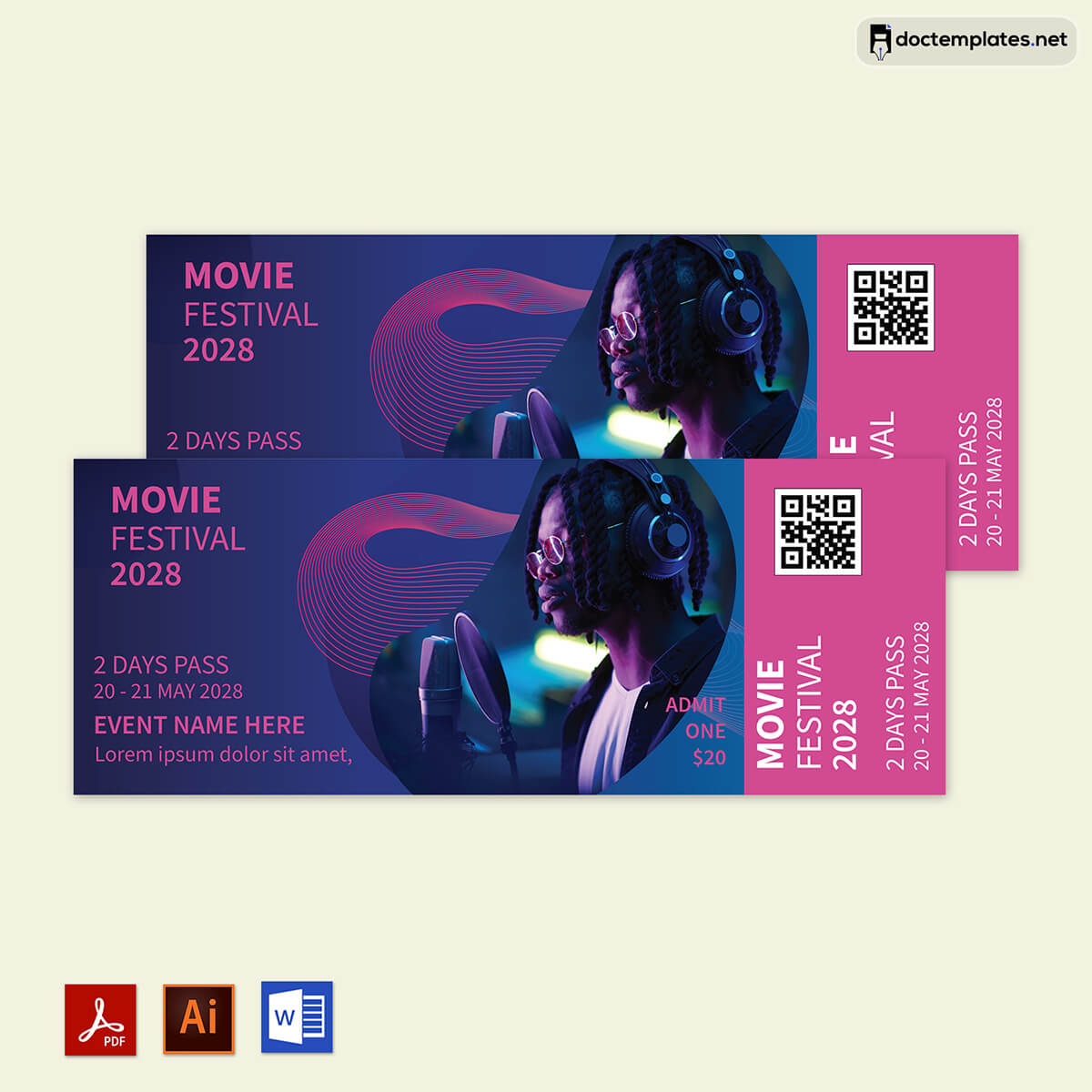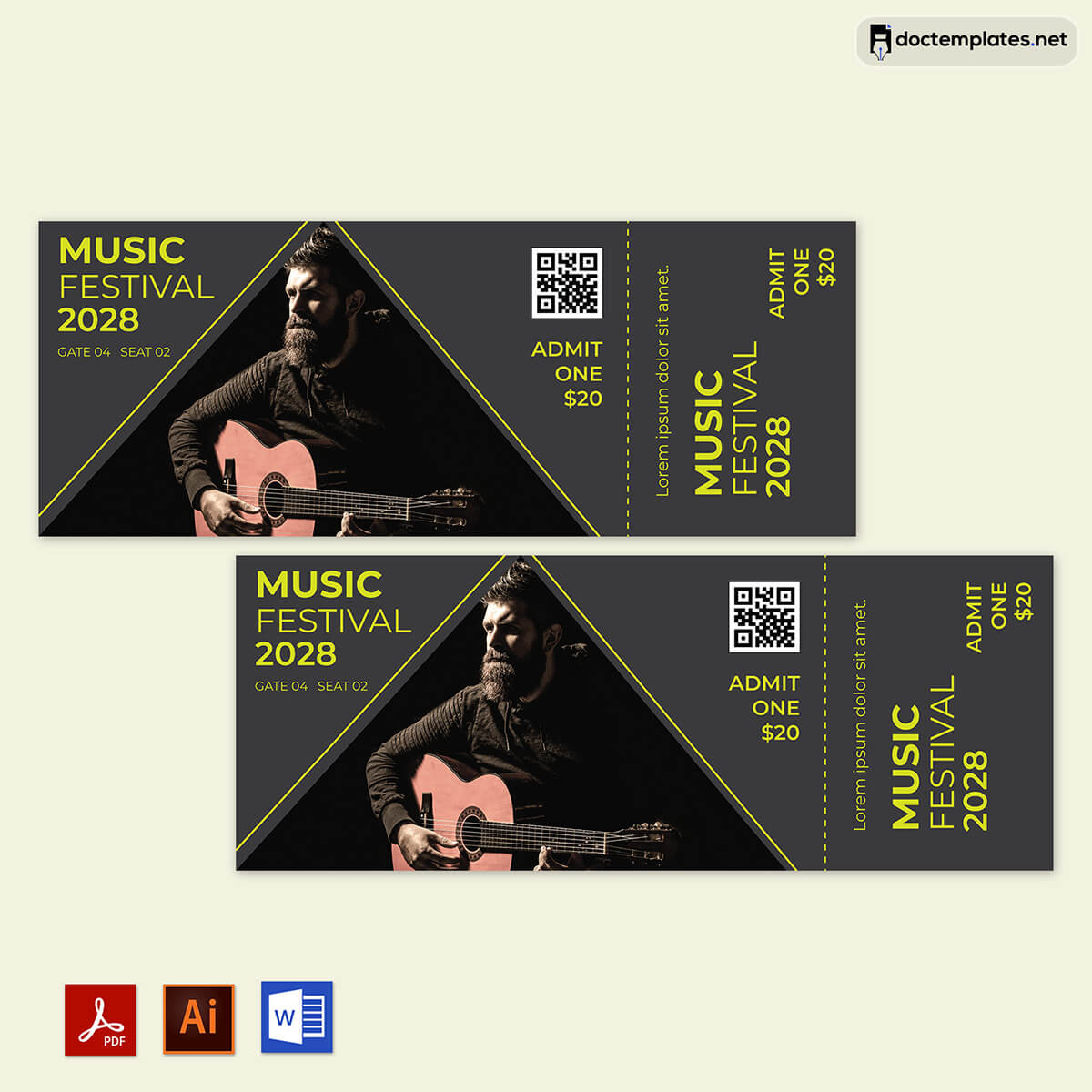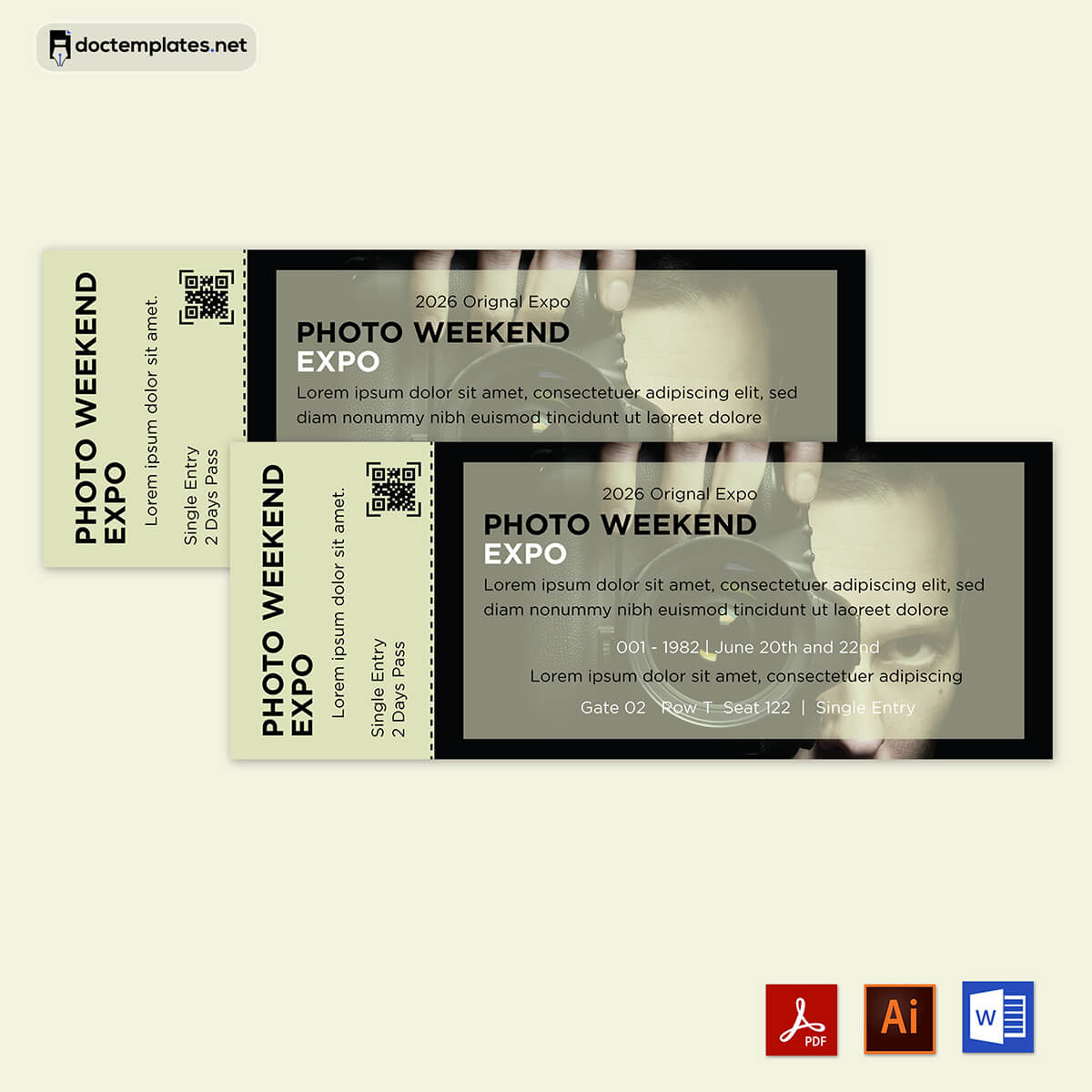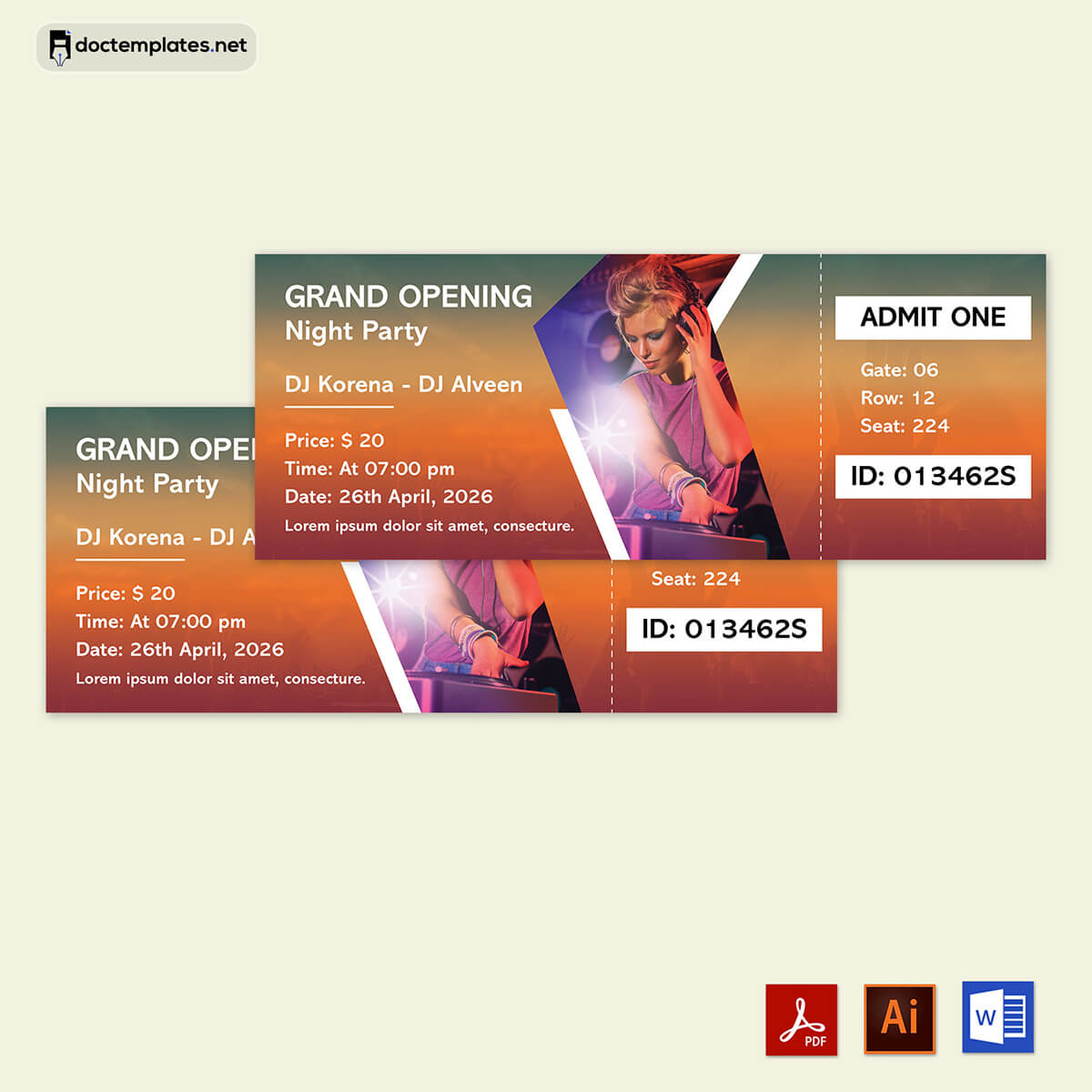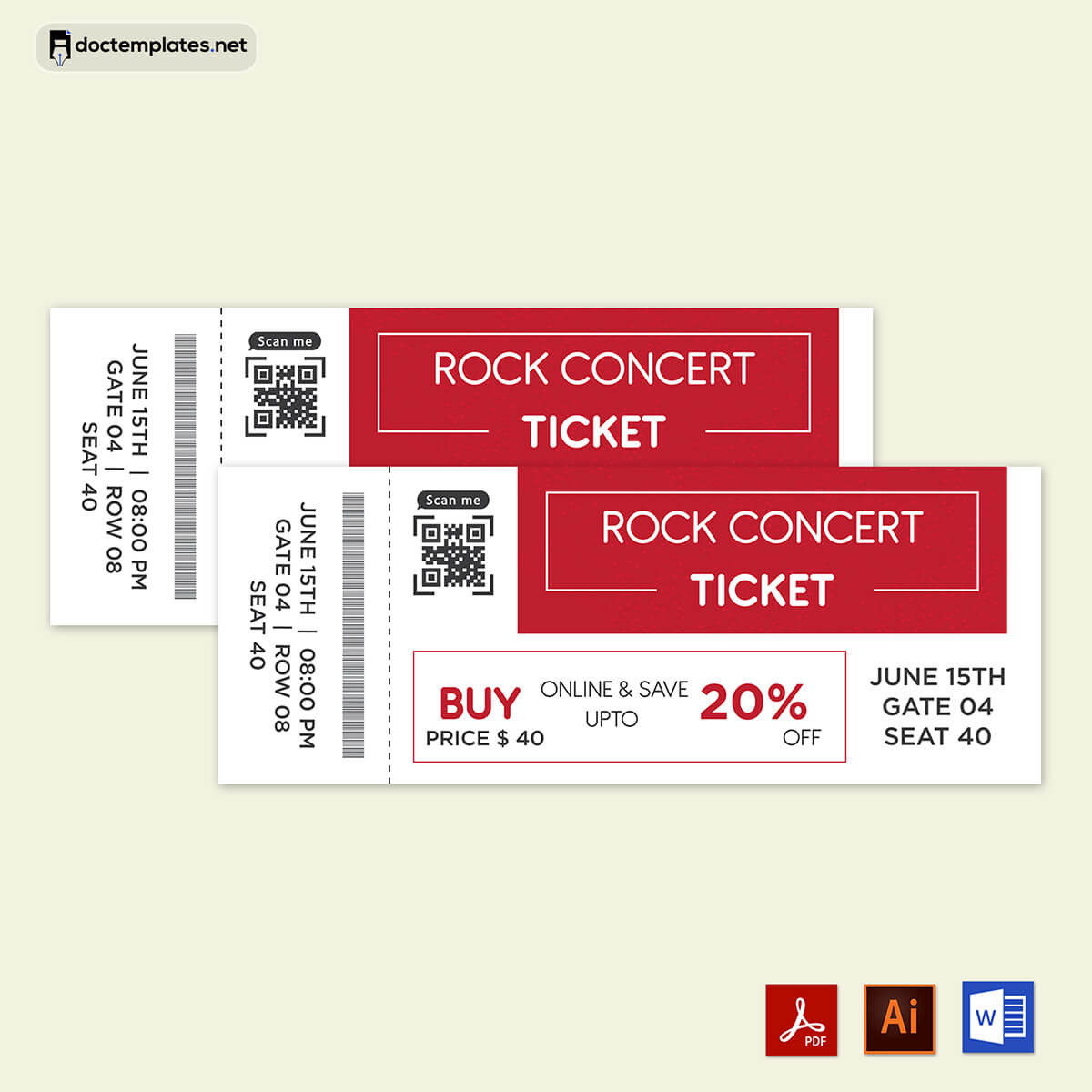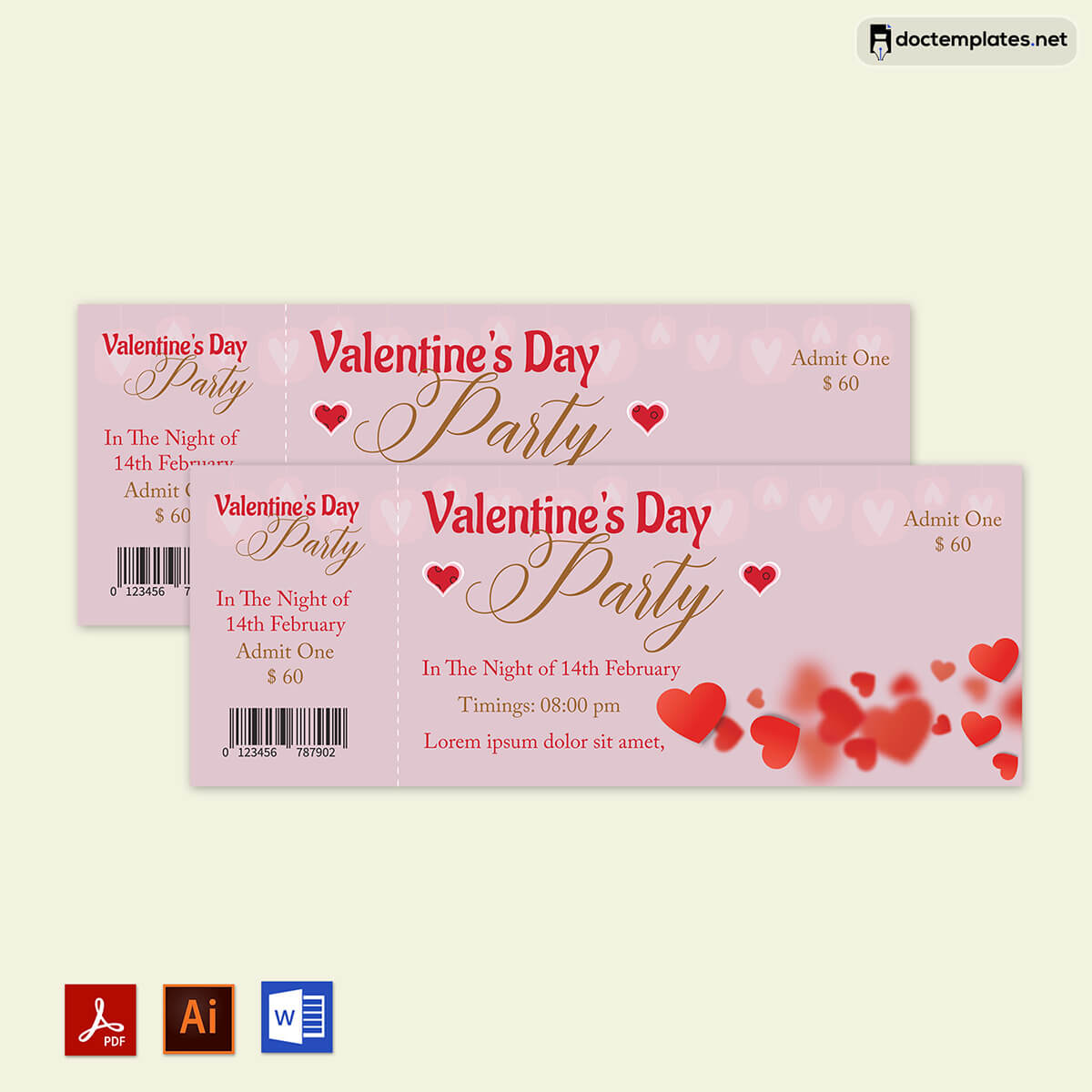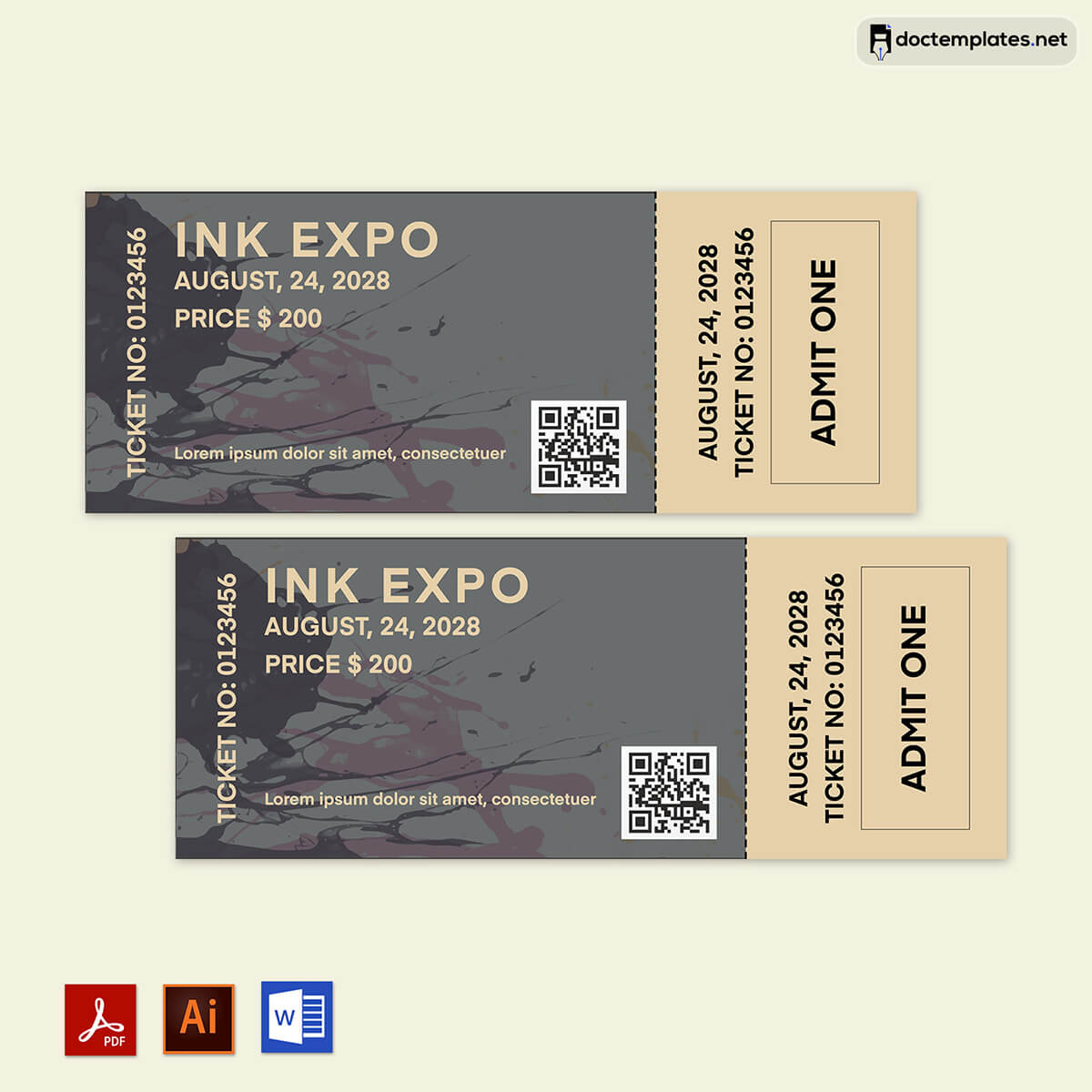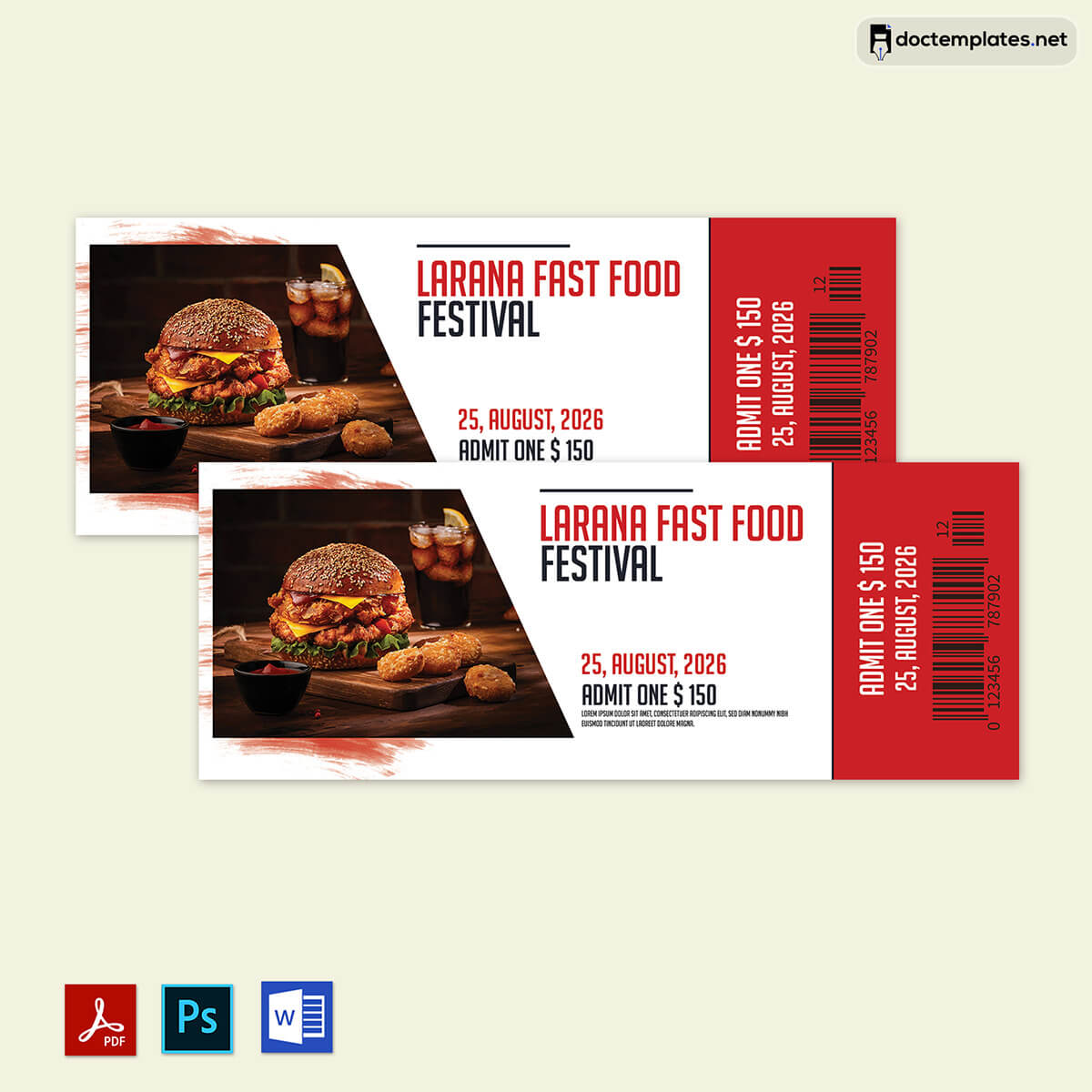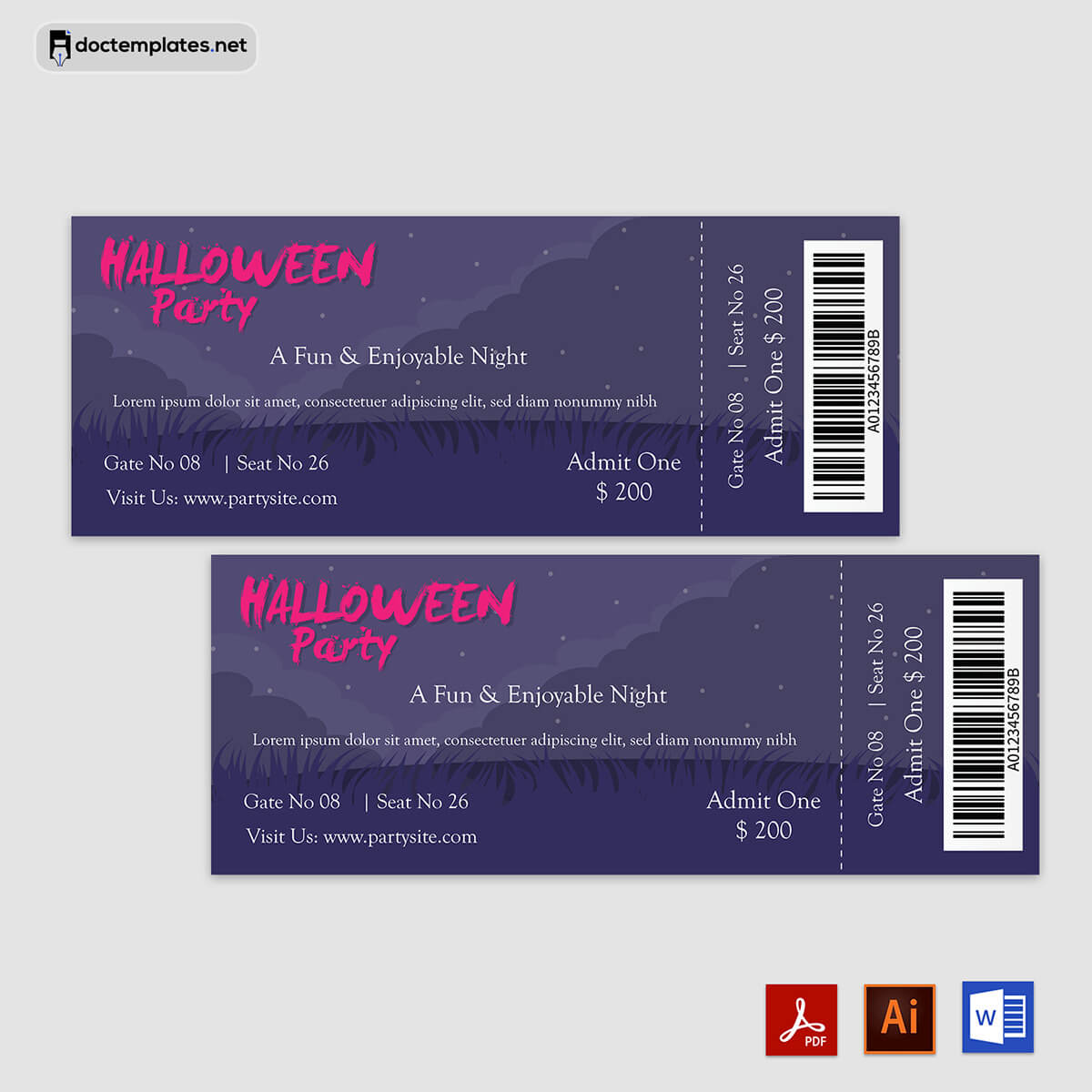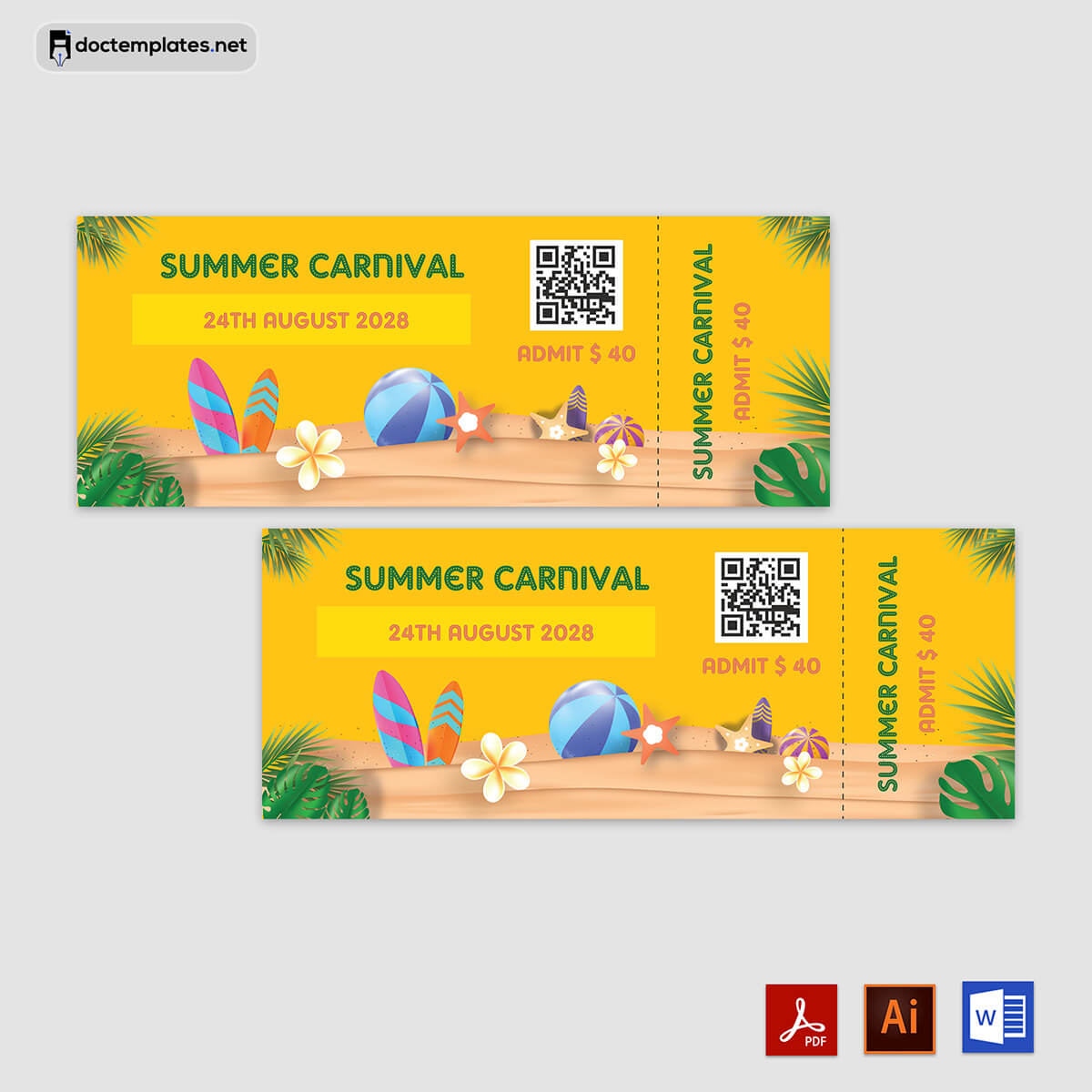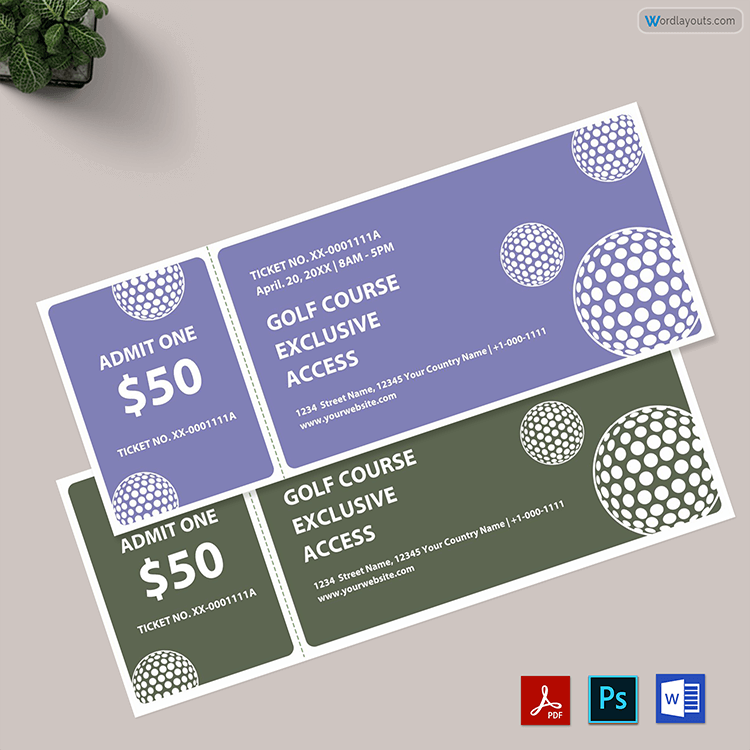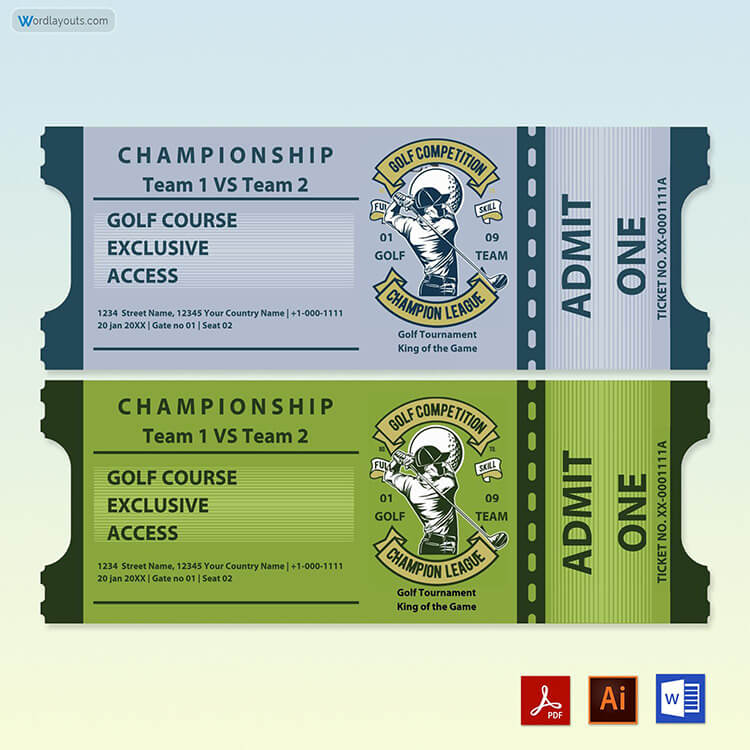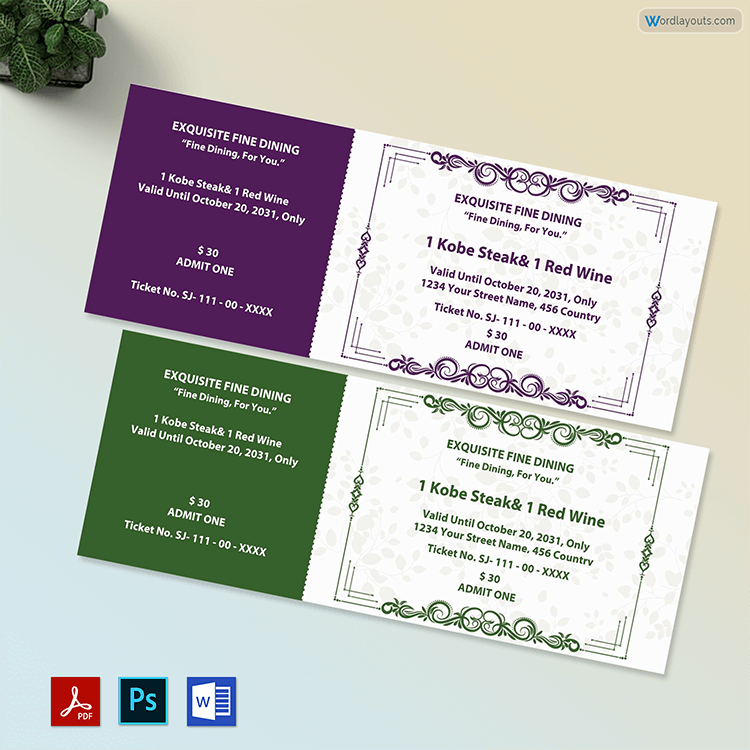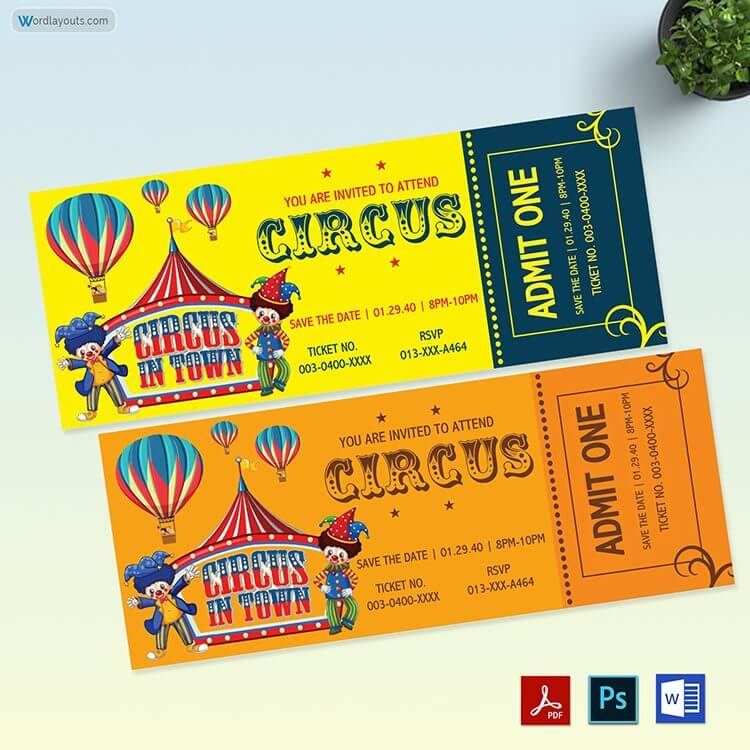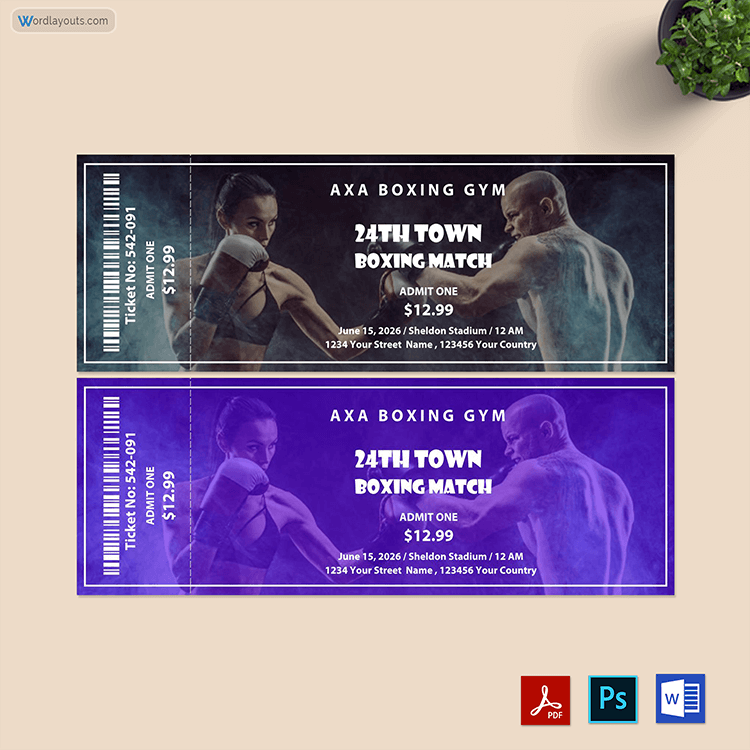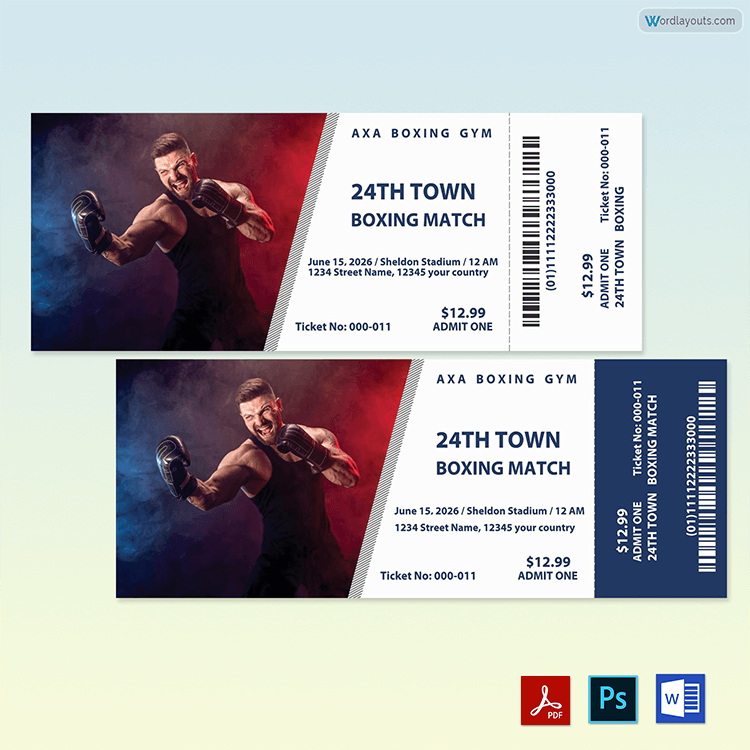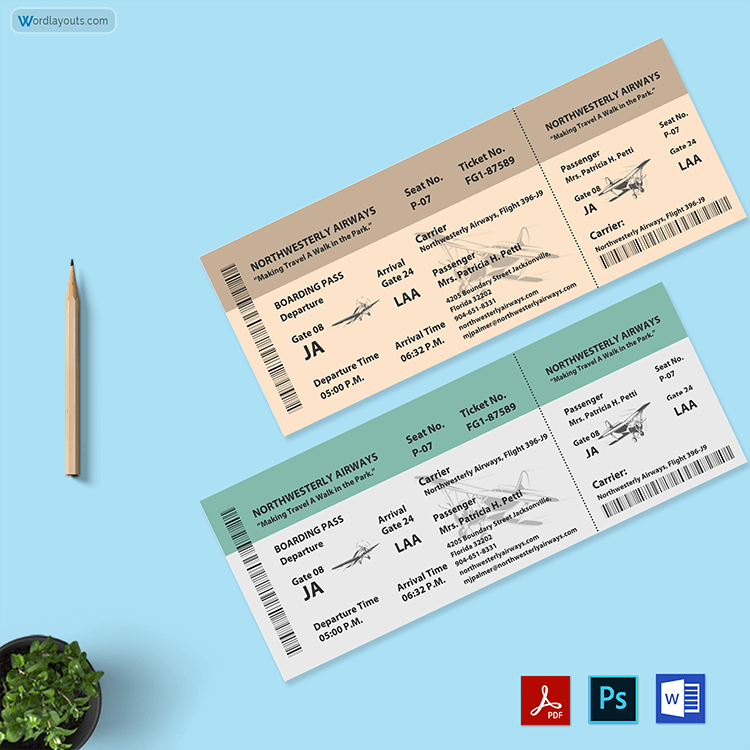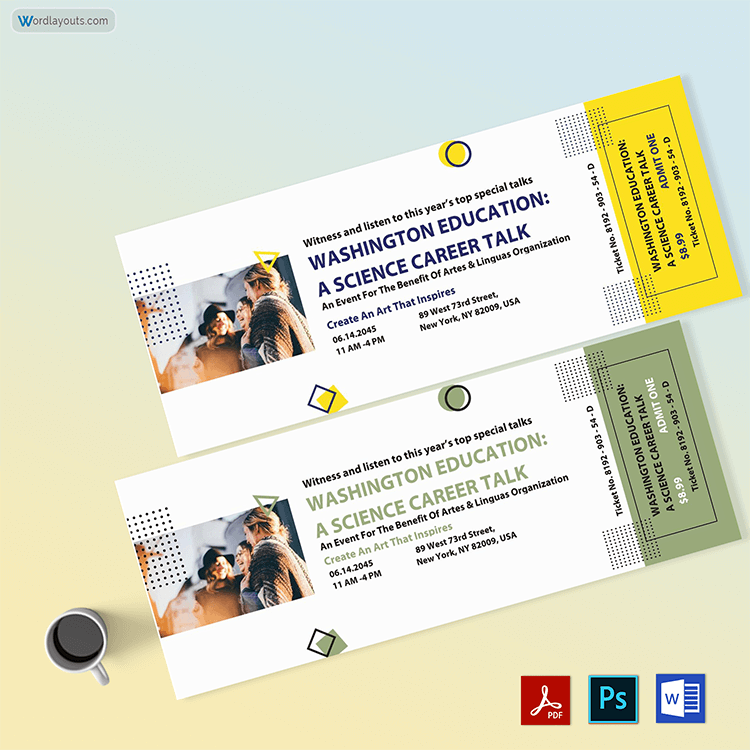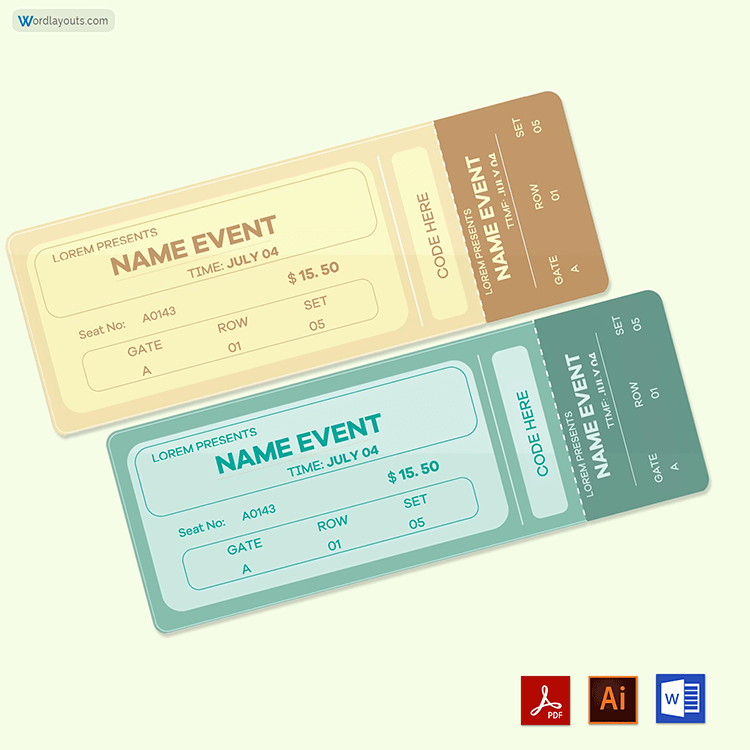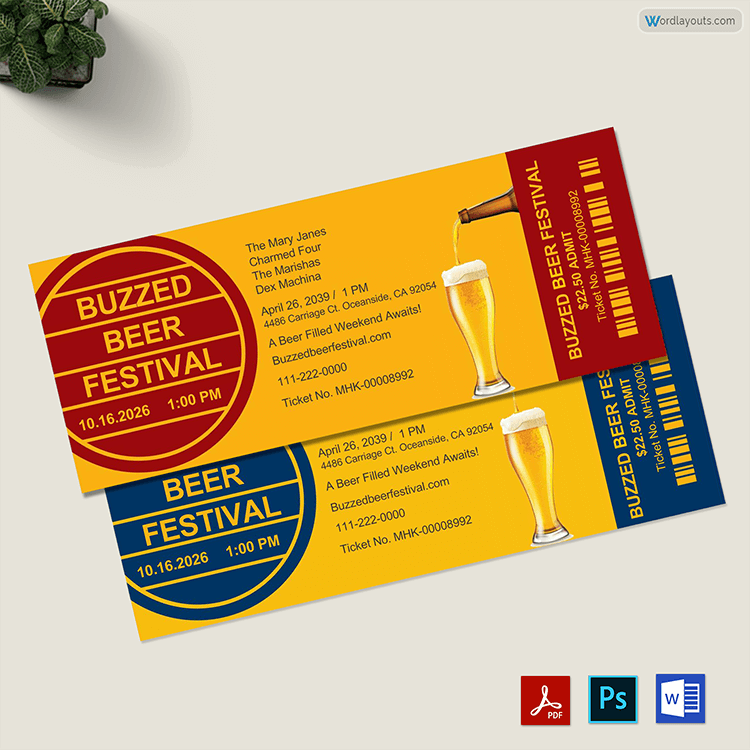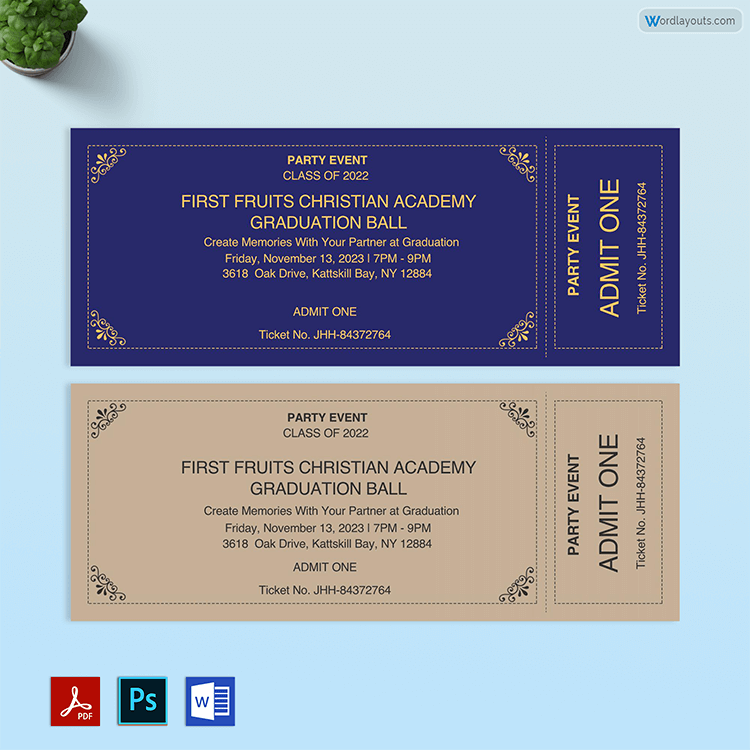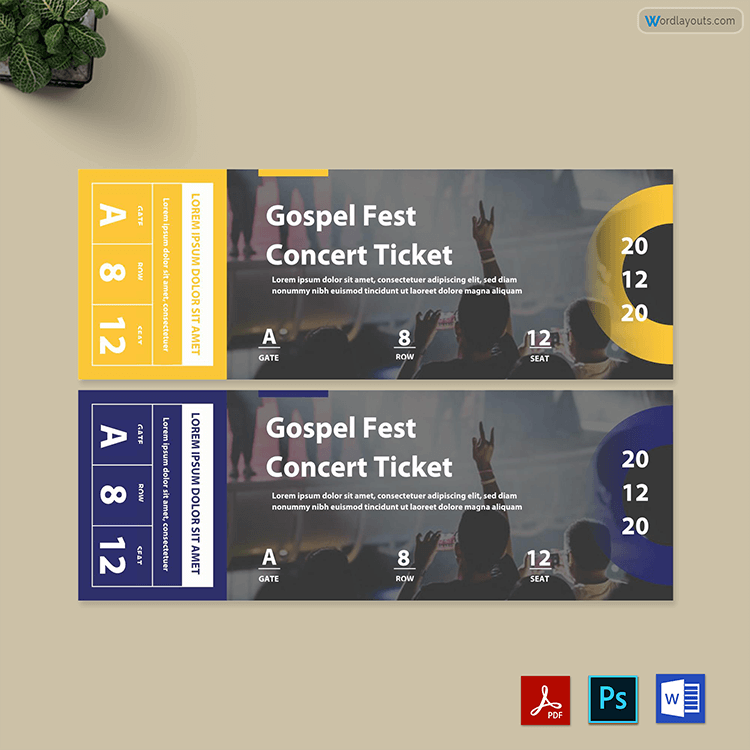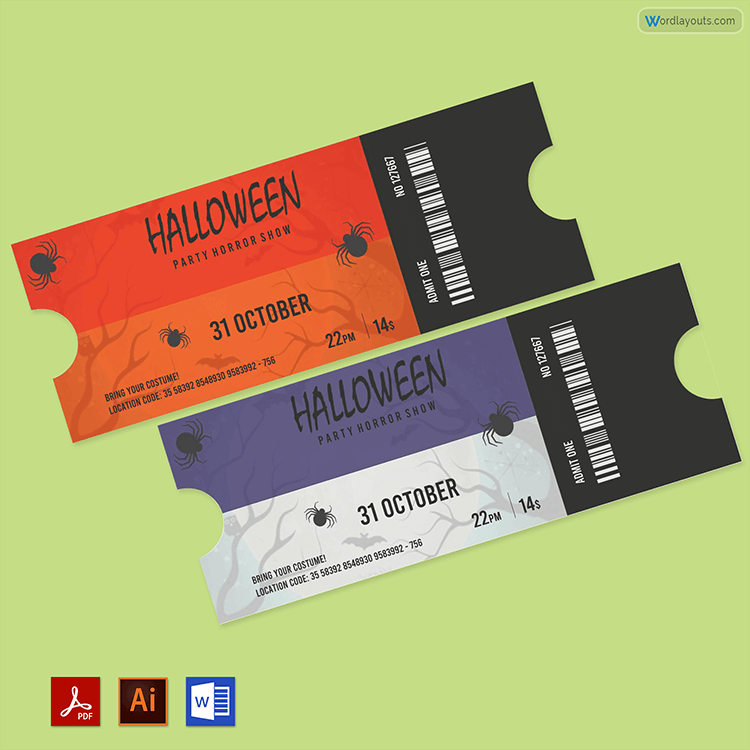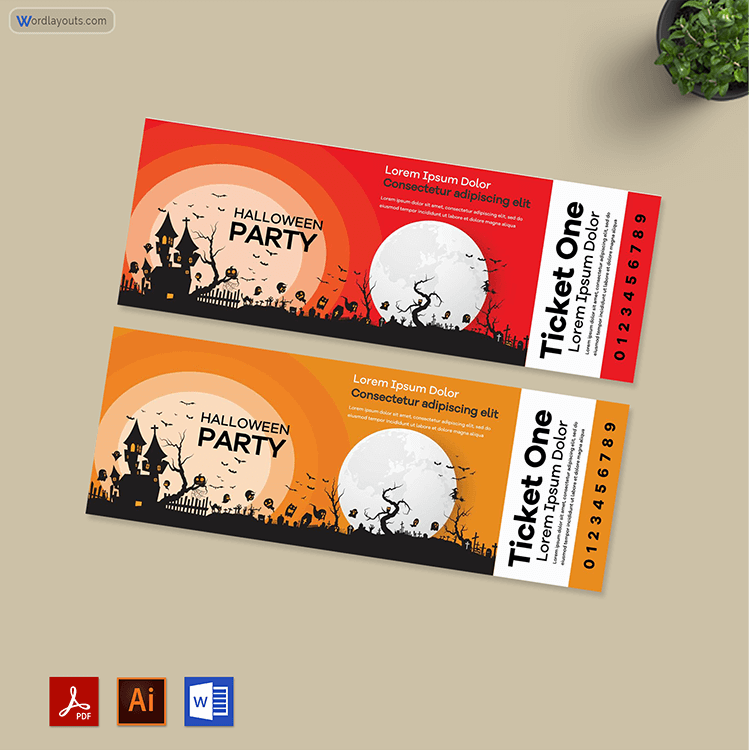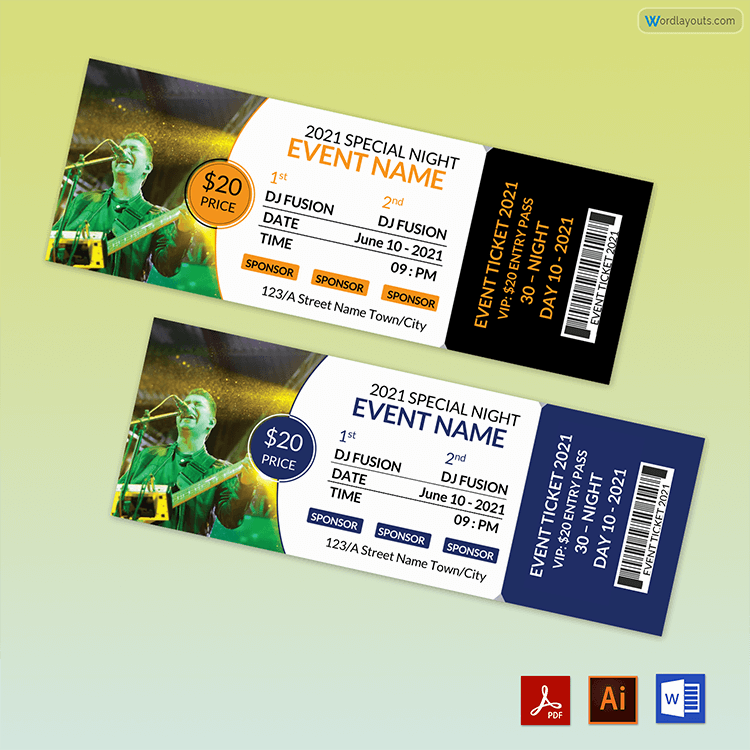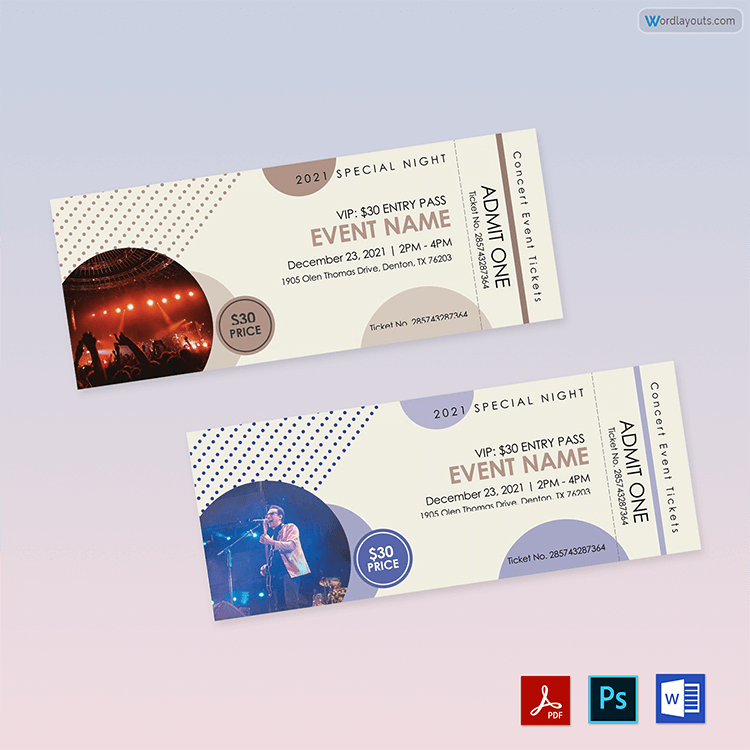A ticket is used in events to show that a person has paid for it, enabling them to get access to and experience the event. As an organizer, your primary goal is to ensure that your event becomes a success, and how you create, and issue tickets could improve or break your prospects of achieving this. As such, it is vital to devise strategies that allow you to sell as many tickets as possible. Event Ticket templates can make your work easy for you.
In addition, it is essential to price and sell your tickets in different categories since it ensures that more people afford them, guaranteeing higher attendance. This is because attendees usually have different budgets for events, with some opting to spend the least amount by taking advantage of discounts and offers. However, other attendees may want an exclusive experience and pay for more expensive tickets.
Statistical insight: Over time, tickets have gained popularity in events, making the industry grow at an average of 8% in 2022 and attracting more investors. This makes it essential to find more creative ways to create and sell your tickets, enabling you to have better designs and be more affordable.
To sell out an event, you should consider the type of tickets you would issue to your potential attendees. Your tickets should be available in different types and prices, allowing everyone to find the right ticket category that suits them.
When you issue your tickets in different types, it psychologically triggers the public to buy them. Also, advance and group tickets have discounts that may be irresistible to the public, making them opt to buy the tickets.
This article is aimed at helping you understand event tickets in depth, enabling you to know the appropriate ticket to issue to your would-be event attendees.
Event Ticket Templates
Event tickets may determine the attendance at your events, making it necessary for you to use practical and appealing designs to attract a larger crowd. This site gives you access to various free event ticket templates, allowing you to download and customize them. This enables you to create the perfect tickets for your event, making it a success.
15 Types of Event Tickets
It is essential to categorize your tickets appropriately since they help you manage your events better and achieve your financial goals.
The following are ticket types you can use for your events:
General admission tickets
General admission tickets allow the general public to attend your event, enabling them to participate in regular activities as the event continues. However, your event may have expensive and premium activities such as luncheons, meet-and-greet with celebrity guests, or an after-party that attendees cannot access using this ticket. Therefore, general admission tickets are only appropriate if your event offers different categories of experiences, encouraging people to pay more to get an exclusive experience.
VIP or luxury tickets
VIP tickets allow attendees to experience all activities of your event, ensuring they get exclusive treatment. Therefore, it would be best if you mentioned the lavish treatment they would get at your events, such as special workshops or networking opportunities, making the differences clear compared to regular tickets. In addition, VIP tickets encourage maximum attendance at your events since their holders are motivated to turn up.
Donation tickets
Donation tickets allow you to reach out to the price-sensitive public so they can attend a fundraising or charity event you are hosting. Donation tickets encourage your attendees to decide the amount they are comfortable paying, keeping in mind that they are contributing towards something. This encourages your attendees to contribute the maximum amount they are comfortable with, allowing each of them to contribute and enabling you to raise the highest amount possible.
Early bird tickets
Early bird tickets allow the general public to buy your tickets at a discounted price for a short period before your event. These tickets encourage attendees to pay more quicker, giving you a rough idea of the attendance. To make early bird tickets more enticing, you can specify the period of their availability, making potential attendees try to beat the deadline, or you can offer another category of earlier tickets making the public excited and buy one.
Reserved seating
Reserved seating tickets are appropriate for events with limited seats, such as fundraisers, banquets, sporting events, and seated concerts, making it necessary for attendees to book them. The tickets can be priced according to the distance to the stage, allowing attendees who sit closer to pay more than the ones at the back.
In addition, reserved seating tickets allow attendees to arrive at your event later without worrying about the availability of seats.
Group package tickets
It would be best to use group package tickets for events with large audiences and expensive tickets, such as B2B events and academic conferences where whole teams plan to attend. You can offer higher discounts for attendees coming in larger groups, making it cheaper for them to buy the tickets. This makes your event more accessible and encourages people to attend in large numbers.
Flash sale tickets
Flash sales allow you to sell a limited number of discounted tickets for short durations. They are more appropriate when you have a limited number of tickets, allowing your attendees to buy them more quickly. The discounts given in flash sale tickets are essential since they help the public decide on attending and pay for the event faster.
Hidden or invisible tickets
In some cases, your event may be restricted to a specific group of individuals, making it necessary for you to control who has access to the tickets. This can be done by locking the tickets with a specific code and issuing the code to your potential attendees or creating a guest list. This ensures that the general public cannot access the tickets, restricting attendance to only those with the code or who are included in the list.
Giveaways
Giveaways allow you to issue complimentary tickets to the general public, granting them access to your event. Giveaways can be issued in competitions or raffles to participants on social platforms, promoting your event and allowing them to attend for free.
Giveaway tickets are helpful when organizing your first event, making people more aware of it to give you a larger audience. These tickets can also be issued to people who registered for your event to meet them and thank them for attending.
Members-only tickets
Some events have a specific audience, making attendance confined to members only. Members-only tickets restrict access, making the general public eager to subscribe for membership so they can attend. Members can also get discounted prices for these tickets, making membership more enticing and appealing to the general public.
Themed promo code tickets
Your tickets can be issued for themed events such as Christmas and Halloween parties, encouraging the general public to get access. In addition, your themed tickets may contain promo codes when issuing early bird tickets, encouraging the general public to pay for the events in advance.
Pay what you can tickets
Attendees to your events can also be allowed to decide the amount to pay for your event through the use of pay-what-you-can tickets. These tickets allow the general public to pay what they are comfortable with, encouraging a more extensive audience since everyone can afford the tickets. You can also set a minimum cost and encourage attendees to pay more; if they do, you may collect more money than expected from the sale of tickets.
Virtual pass
Virtual passes allow you to sell tickets to attendees through electronic means. They provide a safer and cheaper alternative to issuing event tickets since you avoid crowding at ticket booths and save printing costs. Virtual passes are becoming more common as time passes since they allow access to attendees who may not have been close to the venue to purchase tickets physically.
One day pass
Some events last more than a few hours, and you could use one-day tickets to allow the general public to attend the event for a day. This is because they may have other commitments preventing them from attending the rest of the event. In addition, one-day tickets allow attendees to access segments of your event relevant to them and avoid paying for days they are not interested in.
Multi-day pass
Multi-day passes are essential for events that last for more than a day since attendees who want access during the whole event can pay for it. In addition, they allow attendees to come to your event without paying for each day separately.
Factors to Consider Before Building Ticketing Strategy
It is essential to price and categorize your tickets appropriately since it guarantees you enough time to sell them. Before determining your ticket prices, consider your potential attendees’ income level to settle on an affordable price. In addition, it would help to add discounts and offers on your tickets that are relevant to the attendees, making them more convinced to buy your tickets.
You should also be aware of the event type and size, allowing you to adopt a strategy that attracts interested people. Also, it would help to consider the age range of the attendees, enabling you to design your tickets appropriately to make them appealing to your attendees. Accessibility to the venue may guide you on whom to advertise the tickets to, ensuring only allowed guests can pay and attend the event.
Finally, knowing the expected financial target for the event would be best, allowing you to know whether enough tickets have been sold or if you need to adopt a different strategy to sell more tickets.
Information to Include in Ticket
When creating your tickets, you should ensure that information about the event is clear. This allows the attendees to learn more about the event, enabling them to decide on the ticket type to buy.
The following information is crucial and should be included in your tickets:
Title
The title of your tickets allows you to specify the type of ticket. It is helpful in events that have different sections and ticket prices, making it necessary to indicate it on the ticket. In addition, the title ensures that the staff allows the ticket holder to attend the activities they paid for.
Description
Your ticket’s description allows you to explain details about your event. This encourages the public to buy them since they are aware of the experience they may get at your event. Also, you could mention some benefits of attending the event or guide the potential attendees on any restrictions, such as the prohibition of alcoholic drinks.
Minimum & maximum order
In some events, the number of attendees may be limited for various reasons. In such cases, it is essential to set the number of tickets the attendees can buy since it allows you to regulate the number of tickets bought by an individual, ensuring more people can buy them before they are finished.
Quantity
It would help to indicate the number of tickets available. This helps your attendees become aware of the event’s attendance and make them want to buy the tickets before they are depleted.
Ticket price
Your tickets should indicate the price, notifying the attendees of the cost of acquiring one. You can also indicate discounts for buying more than one ticket to encourage your attendees to contemplate buying another.
Available dates for purchase
It is essential to indicate when specific tickets to your events are available. This enables you to specify the dates for buying early bird tickets, which may have discounts, allowing the general public to buy them before the window is closed.
Practices to Consider for Designing Event Ticket
Your ticket design should be simple and appealing, allowing the general public to get important information and want to keep the ticket even after the event.
The following considerations may help when designing your ticket:
It should be easy on the eyes
It is essential to design your tickets appropriately so that attendees and event staff can read them easily. You should ensure that event details are included in the tickets and that they are visible. Ensure that the characters on your event tickets blend with the font and design to make them more appealing and effective.
Design the back side of the ticket
The back side of tickets usually does not have any content, giving you enough space which you can use to add relevant information. In addition, the backside can offer irresistible discounts for products sold by sponsors to the event, enticing attendees to take advantage of the offer.
It should capture the essence of the event
It would be best to consider the design of your event tickets since they should match the event to which they give access. It is essential to be creative when designing your tickets so they may appeal to the holders, making them want to stay with the tickets for longer.
Use a template
Events may require many tickets, making it necessary to create templates and number them before printing. You may also need to perforate your tickets, necessitating you to align your templates properly on your perforating machine. Before printing, it is vital to ensure that your ticket template contains all the relevant information.
Event Ticket Pricing Strategies
The attendees of your events usually come from different backgrounds, making it necessary to price your tickets considerably. This ensures that more people afford the tickets, increasing attendance at your events.
The following strategies can be used when pricing your tickets:
Tiered ticket pricing
Attendees usually come to events with different budgets, necessitating you to allow them to decide how much to spend on their tickets. This can be done by introducing different ticket types at different prices. For example, early bird tickets can be made available for attendees with low budgets, allowing them to buy the tickets at a discounted price and save.
However, some attendees may be willing to spend more to get an exclusive experience, making it essential to make VIP tickets available.
Dynamic ticket pricing
Dynamic ticket pricing allows you to issue one ticket type at different periods, enabling you to change the price during these periods. This allows you to set prices that the attendees feel comfortable paying, ensuring that all tickets to your event are sold.
Over time, the software has been developed to help you get information and feedback from your audience, allowing you to set prices that match their financial capabilities. Dynamic ticket pricing is helpful since it ensures you earn maximum revenue from selling tickets to your events.
Methods to Deliver Event Tickets
You should consider the method used in delivering your tickets, as this is vital in ensuring that your tickets are accessible to anyone interested in attending your events. It also allows event staff to validate tickets to grant access, preventing outsiders from entering the premises. Ensure that your tickets can not be duplicated, which can lead to several people successfully using the same ticket.
The following methods can be used to deliver your event tickets:
Thermal tickets
Thermal tickets are created through thermal printers, which use heat to embed ink on paper. Thermal printers are better than inkjet and laser printers since they are more efficient, making the printing process straightforward. In addition, desktop applications have recently been developed to manage the printing process better since you can receive alerts whenever there are complications.
Mobile tickets
Mobile tickets are sold over the phone through the use of ticketing applications. Mobile tickets are convenient for your attendees and you since they give you a more straightforward and cheaper means to sell your tickets. This is because you avoid printing and distribution costs which can reduce the overall profit of the event.
Also, mobile tickets allow you to manage your events better since you can determine how tickets are presented and prevent two people from using the same ticket.
RFID tickets
Radio Frequency Identification (RFID) tickets have circuits containing data to validate tickets in your event. Upon arriving at the event, these circuits can be scanned in various accessories, such as wristbands and stickers, allowing the event staff to receive the attendees’ information, and grant them access. In addition, outside sources cannot duplicate the information in these circuits, making it safer and easier to track your event attendees.
Final Words
The type and price of tickets you use when organizing your events affect attendance, making it necessary to customize your ticketing strategies according to the audience. This allows your audience to decide when to buy the tickets and the type of tickets depending on the experience they want to get.
When creating tickets, it is essential to ensure that the design matches the event type they give access to. Also, it would be best to use fonts and graphics that blend with the design, allowing attendees and event staff to read the information portrayed quickly.
